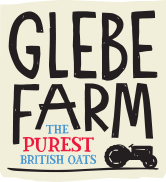PUREOATY has a super low carbon footprint! And that's official.
We’ve worked closely with MyEmissions to measure the carbon footprint of our products, and we’re thrilled to share that our PureOaty range has a SUPER LOW carbon footprint!
But how did we get these numbers? MyEmissions analyses various factors such as farming, processing, packaging, and transport to determine the final result.
Of course, farming and sourcing our own purest British oats close to our factory plays a big role!
By switching to our low-carbon products, you’re making a positive impact – not just for the planet, but for your own carbon footprint too!
*Psst… our oat milks have 50% lower emissions than the brand leader, Oatly!

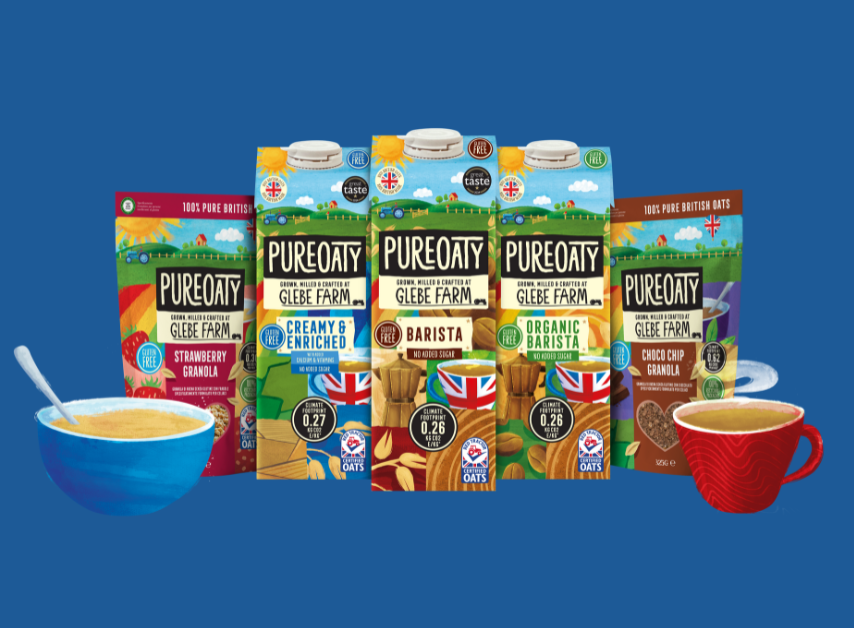
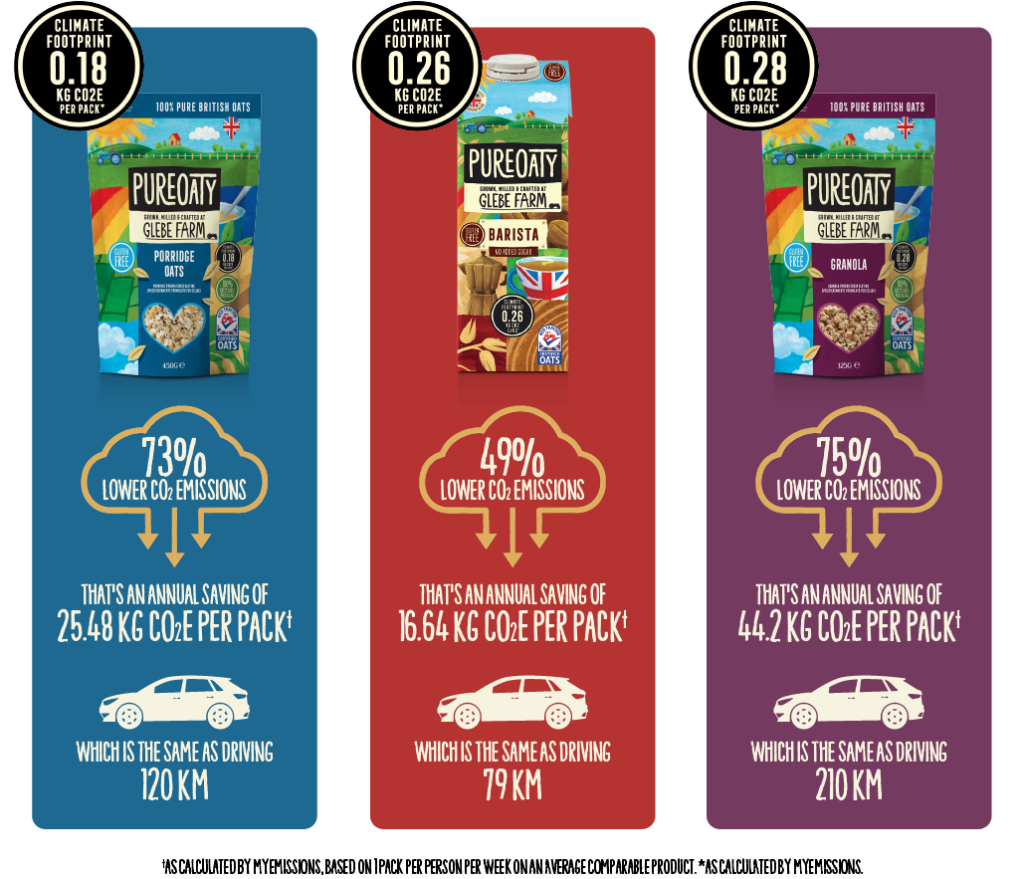
After investing in a new multi-million-pound Tetra Pak plant in 2023, all our products from Oat milks to porridge oats and granolas are now processed and packaged onsite. This brings down food mileage from oat milling to packing to 150 metres, and PureOaty oat drink’s climate footprint.
We have also made significant efforts in renewable energy use, circular manufacturing and regenerative farming developments we’re totally aligned with the net zero aspirations of many of our customers and B2B partners. We’re excited to see real change in decarbonising foodservice, retail and consumer brands as more and more customers are turning to our range of oat drinks, granolas and of course our raw oats, not only because of the taste, quality and the gluten-free guarantee, but the fact sustainable practice is at the core of everything we do. Using our products over alternatives can make a real difference to a business’s sustainability targets.

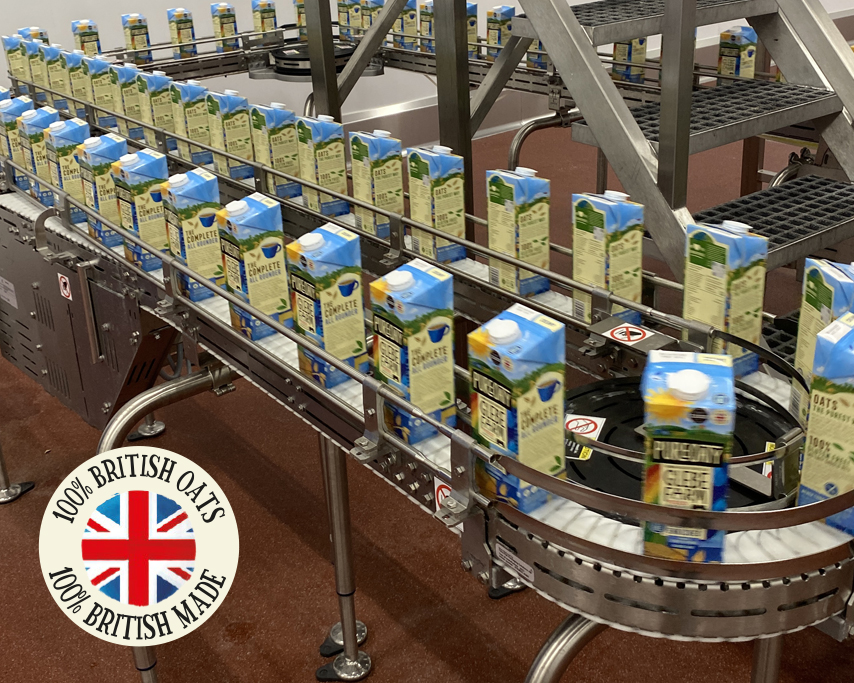
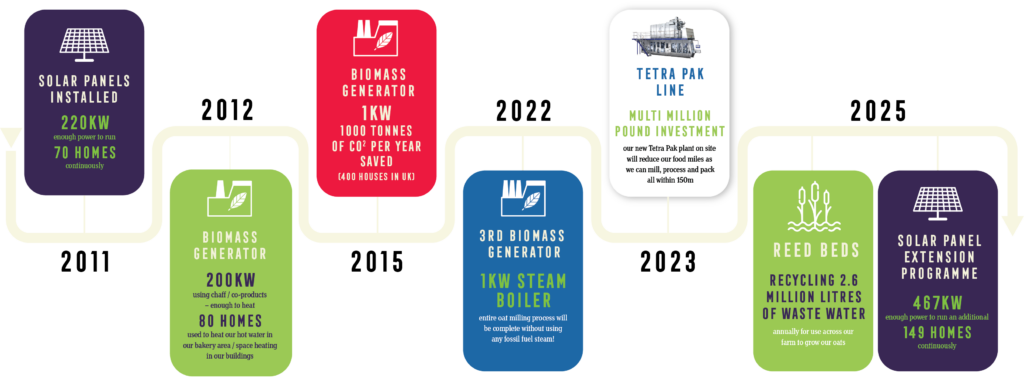
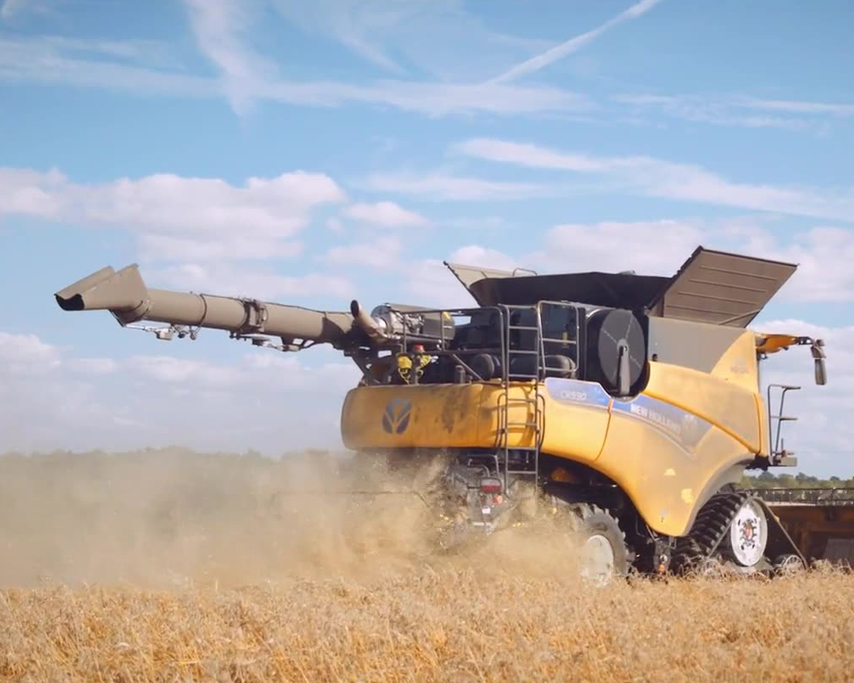
Responsible Farming
Glebe Farm champions our local Cambridgeshire farmers, collaborating on practices such as enhancing organic matter in soil for improved water retention; vital for spring crops amidst looming drought challenges, as well as our innovative approaches like parallel cropping and winter cover crops. With a 20-year legacy, Glebe Farm has been a pioneering force for these methods. By planting two distinct crops that thrive without competing for nutrients, we unlock their full yield potential in a single growing season. For example, harmoniously growing peas and oats allows for optimum growth of our oats, with the peas then filtered out of the harvest and used in animal feed production. Alongside this, winter cover crops prevent nitrate leaching, especially on fallow fields during winter. This practice safeguards the environment and prevents pollutants from reaching watercourses, bolstering balanced ecosystems.
